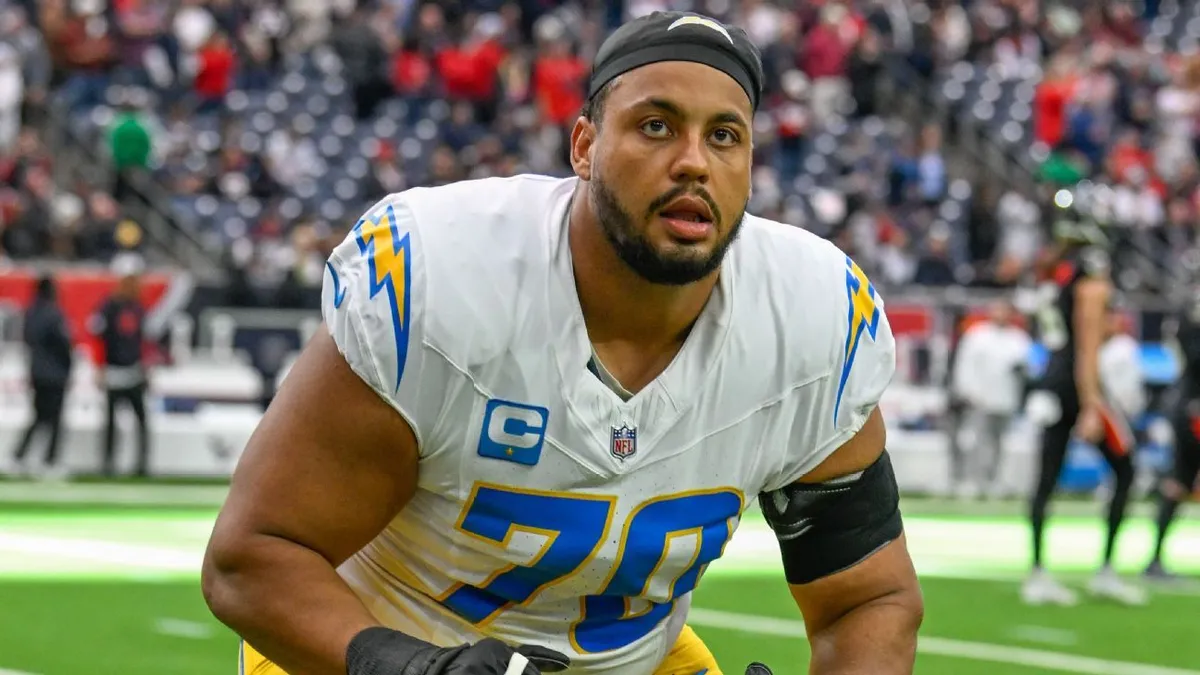
The Los Angeles Chargers have made headlines with the recent agreement reached with two-time Pro Bowl left tackle Rashawn Slater. On Sunday, it was reported by ESPN's Adam Schefter that the Chargers and Slater have finalized a remarkable four-year contract extension worth $114 million, which includes an impressive $92 million guaranteed. This deal not only solidifies Slater’s position on the team but also establishes him as the highest-paid offensive lineman in NFL history based on average annual pay.
Rashawn Slater has been eligible for a contract extension since the previous offseason. Despite this, general manager Joe Hortiz and the Chargers opted to wait, allowing other players from his 2021 draft class, such as the Detroit Lions' Penei Sewell and the Minnesota Vikings' Christian Darrisaw, to secure lucrative extensions first. Sewell signed a four-year deal worth $112 million with $85 million guaranteed, while Darrisaw's contract is for four years at $104 million with $67 million guaranteed. Although the Chargers did not initially disclose the terms of Slater's contract extension, the announcement made on Sunday confirmed the significant financial commitment the team has made to its star left tackle.
In the previous season, Rashawn Slater experienced a somewhat inconsistent performance. However, with the arrival of coach Jim Harbaugh in February, Slater rebounded strongly in 2024, reclaiming his status as one of the league’s premier tackles. Despite not practicing with the team since July 18 due to what Harbaugh described as a minor injury, Slater has been diligently working with the executive director of player performance, Ben Herbert. His ability to secure a record-breaking payday underscores his importance to the team and the potential for the Chargers to achieve significant success this season.
In Harbaugh's coaching philosophy, a dominant rushing offense is crucial for success. He emphasized the necessity of having a premier offensive line, referring to it as the “tip of the spear” for an attacking offensive strategy. This belief was evident during his first draft with the Chargers when the team faced criticism for selecting tackle Joe Alt at No. 5 instead of opting for a pass-catching weapon like Malik Nabers. Harbaugh defended the decision by highlighting that offensive linemen are indeed viewed as vital assets in the offensive playbook.
During his tenure with the San Francisco 49ers from 2011 to 2014, Harbaugh's teams showcased a similar trend. The 49ers ranked 30th in passing yards over those four years, yet their rushing offense was a powerhouse, finishing second in the NFL with an average of 139.6 yards per game. This emphasis on the running game continued during Harbaugh's final season at the University of Michigan, where the Wolverines ranked 81st nationally in passing but third in the Big Ten for rushing yards per game.
With Rashawn Slater now secured through the 2029 season, the Chargers have addressed one of their most significant offseason storylines. As they build towards future success, the establishment of a strong offensive line will undoubtedly play a pivotal role in their performance on the field. As the 2024 season unfolds, the Chargers and their fans will be eager to see how this contract extension impacts their quest for success in the NFL.